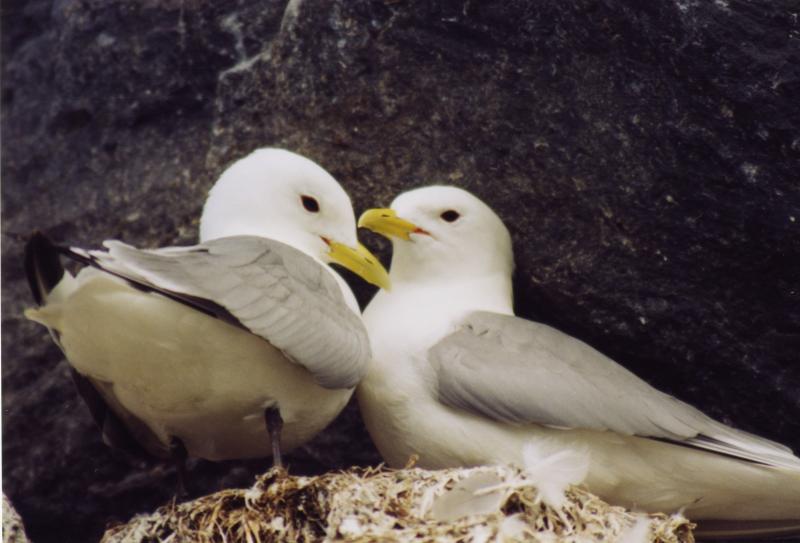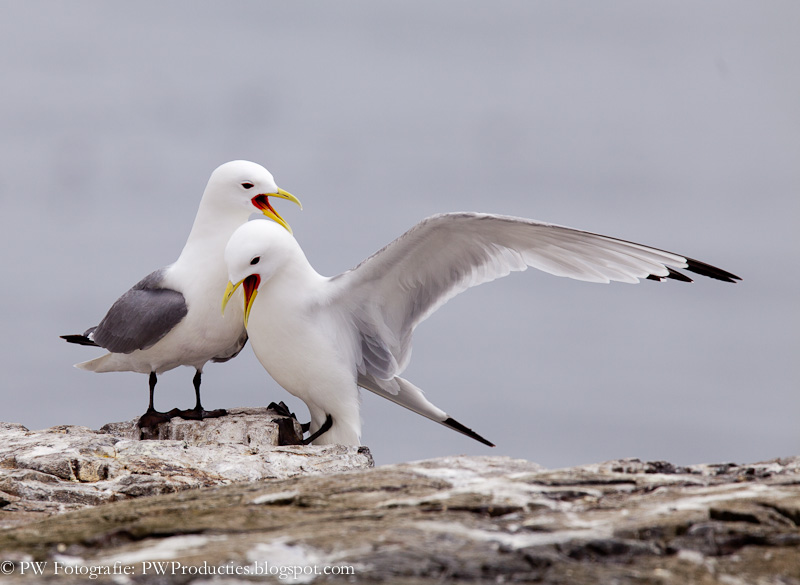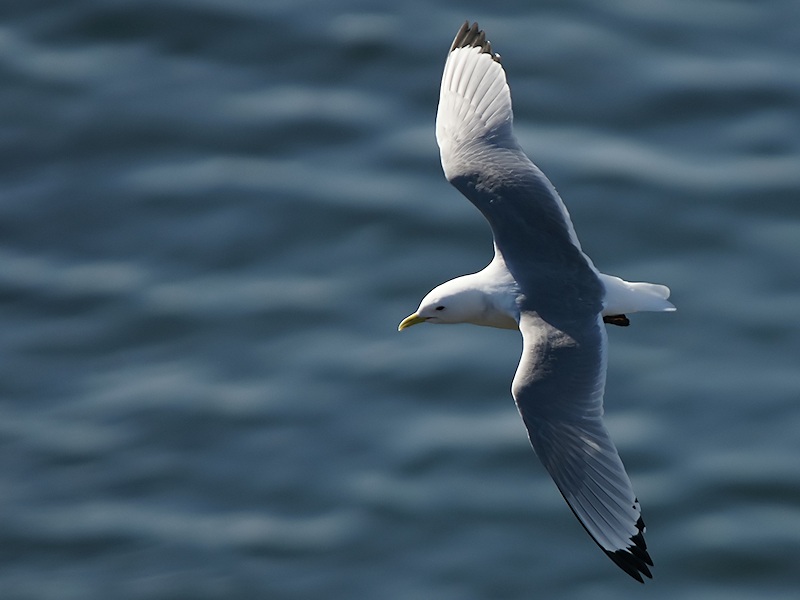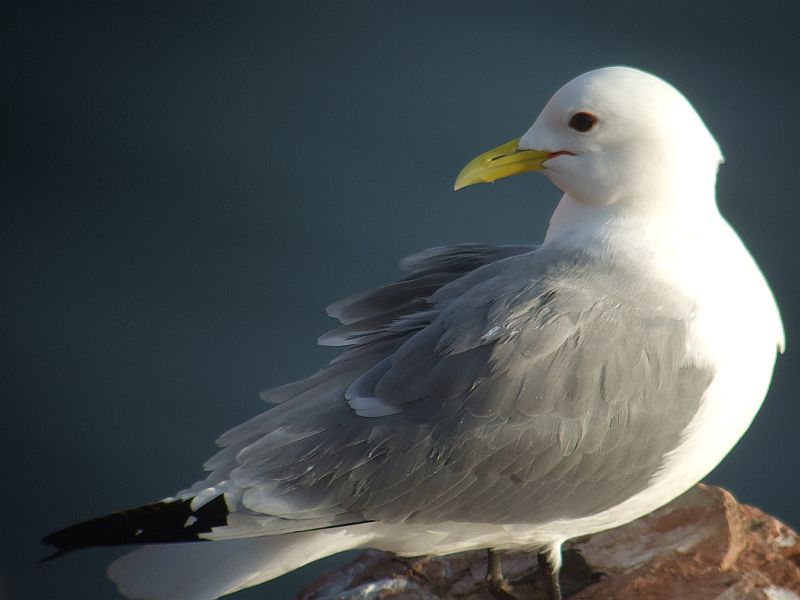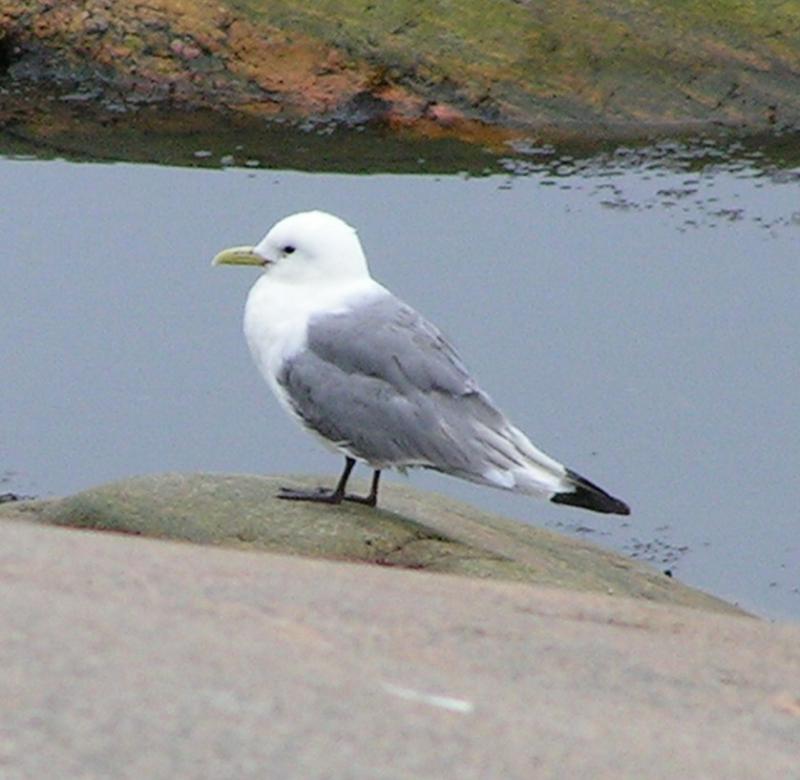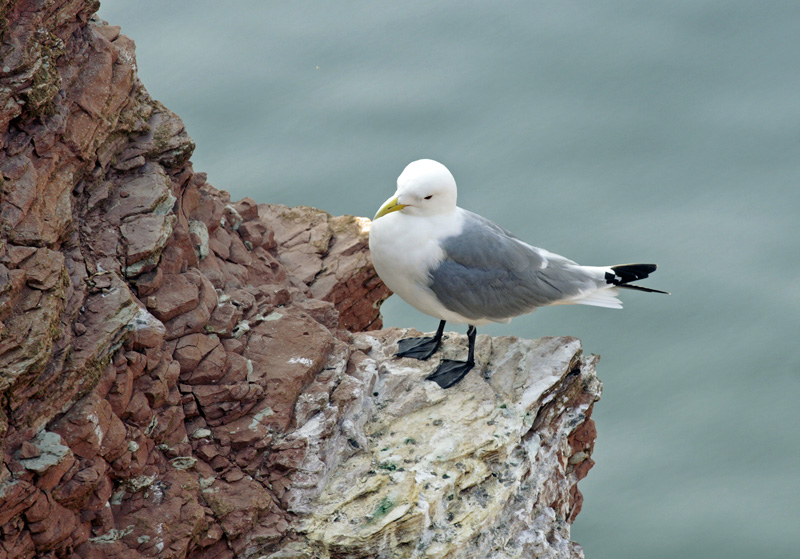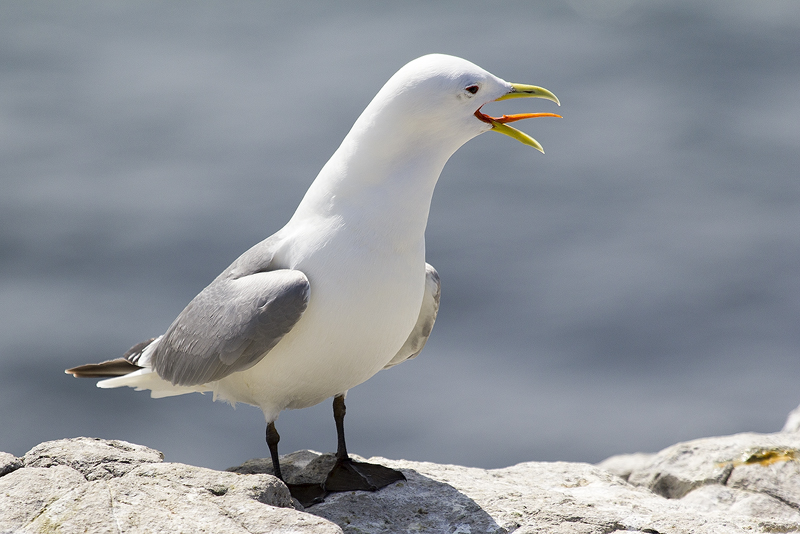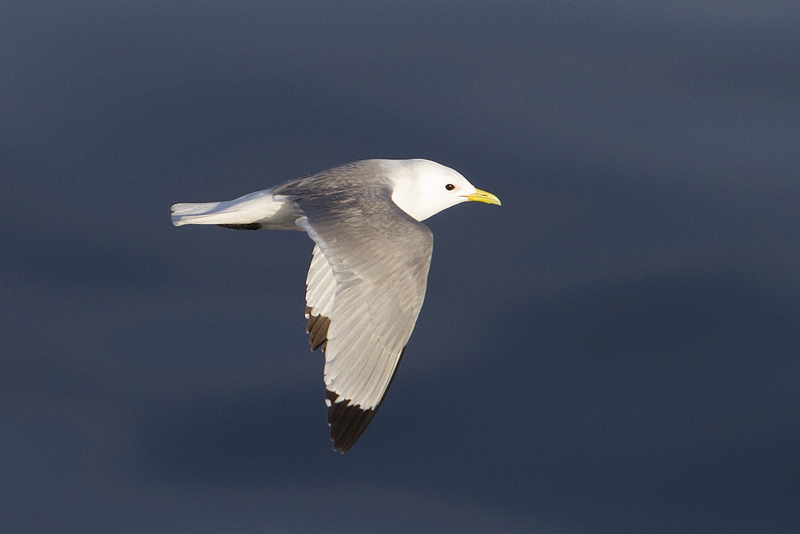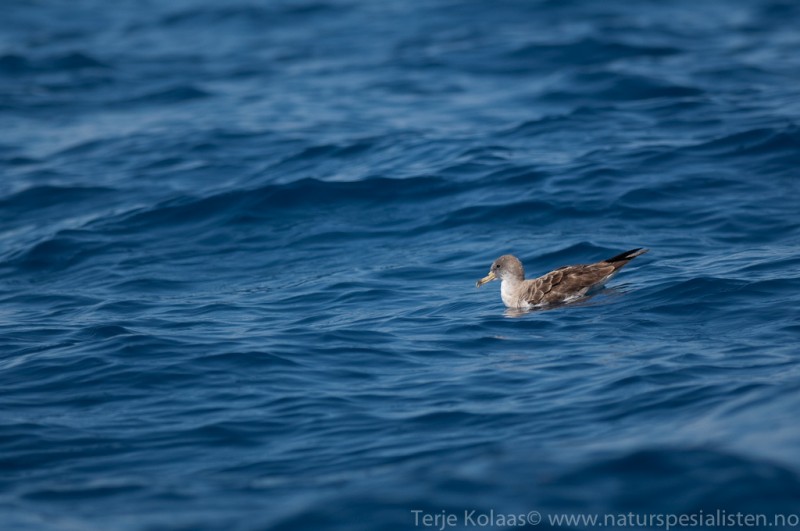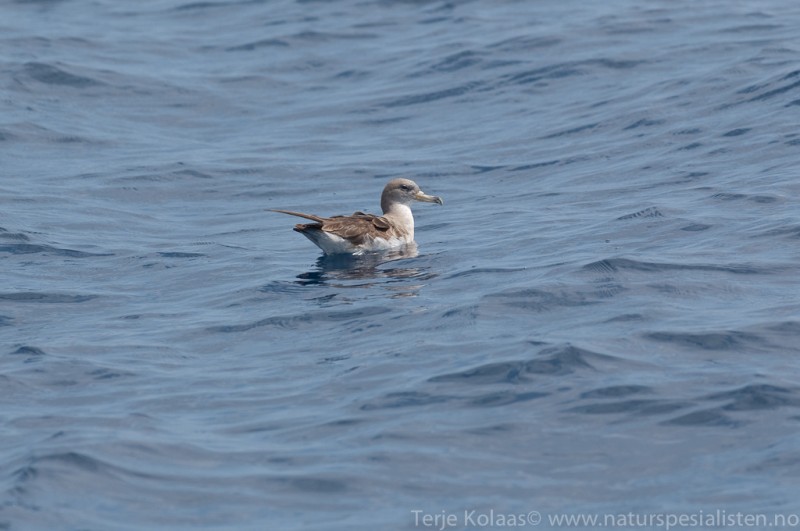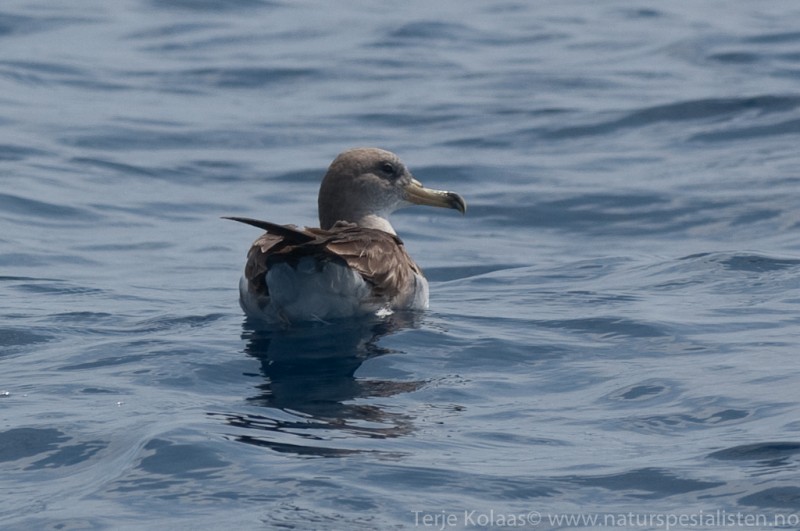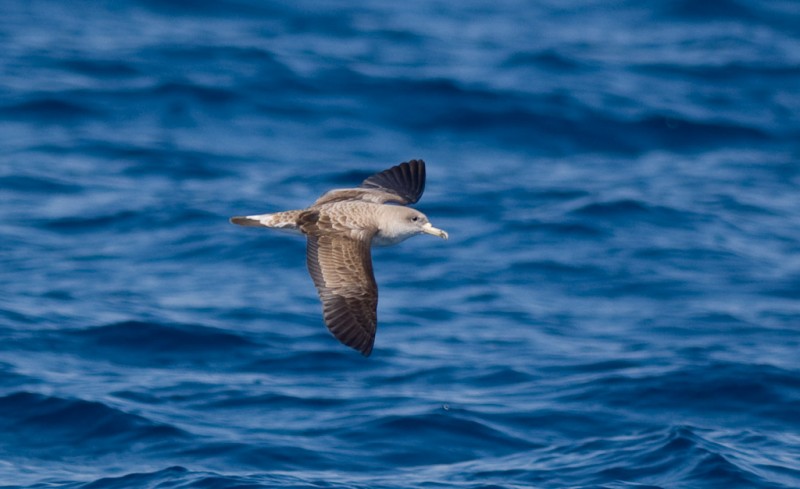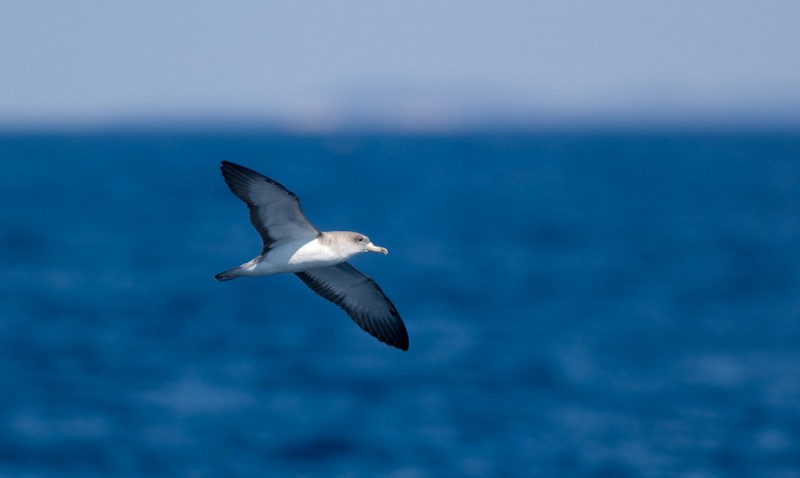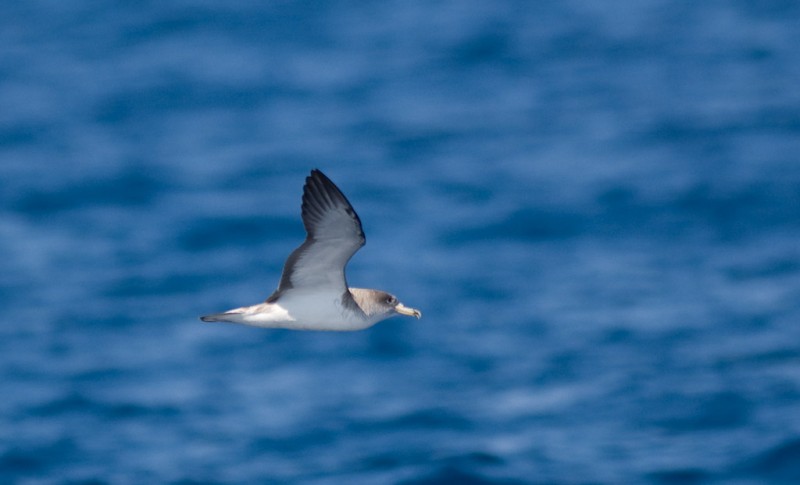Kittiwake (Rissa tridactyla)
Cory's Shearwater (Calonectris diomedea)
Small and agile gull with all black wing-tips, black legs (adults) and yellow bill. Area close to wing-tips much paler than rest of wings, and often visible at surprisingly long range (more so than the black tips). Adult winter with grey neck and black half-collar. Juveniles with black zig-zag pattern to wings, resembling pattern seen in Little Gull, Ross's Gull and Sabine's Gull. Differs from those in; no dark bar on secondaries, underparts of wing white, back grey, black on primaries reaches wing-tip. Flight action different from larger gulls; fast, stiff wing-beats and elegant maneuvering even in strong winds.
Sound:Highly vocal at breeding ground. A mewing "kitti-wake", with the pitch rising on the second drawn out syllable, and then falling. Generally silent elsewhere, except when squabbling over food.
Contact call:
Distribution:
Wikipedia: map (se also Xeno-canto below)
Ecology:Birdlife ecology
Links:
Observation.org Latest observations
Image search Flickr NB! May give other species
CCSounds:Recorded by Stein Ø. Nilsen,http://www.xeno-canto.org ,CC license
A large shearwater with pale upperparts and heavy, yellowish bill. Large grey head. The grey neck forms a diagnostic, contrasting line from wing base to base of bill (most other shearwaters have white neck-sides). Armpits usually pure white. Underside of wings white, framed by black flight feathers. Flight action calm and distinct. Long glides alternates with 3-4 slow wingbeats. Wingtips always bent downwards, and wings slightly angled back. Often soars. Differs from Fulmar in dark tail, grey head, long, narrow wings and longer bill. The two subspecies C. diomedea and C. borealis, are somtimes treated as different species. Field identification of these usually impossible, and requires ideal conditions. Hand of borealis is darker due to no white fringes to primaries. In diomedea the white in the coverts extends in a white wedge into the hand, through the base of the primaries.
Sound:Very vocal at breeding ground. Calls with a very nasal, comical, mewing "ke-kooeee", ending with falling pitch, like a releasing sigh or moan. Sometimes reltively pure, other times very hoarse and raucous.
At breeding ground (C. d. borealis):
Distribution:
Wikipedia: map (se also Xeno-canto below)
Ecology:Birdlife ecology
Links:
Observation.org Latest observations
Image search Flickr NB! May give other species
CC
 English
English Albanian
Albanian
 Armenian
Armenian
 Bulgarian
Bulgarian
 Catalan
Catalan
 Croatian
Croatian
 Czech
Czech
 Danish
Danish
 Dutch
Dutch
 Finnish
Finnish
 French
French
 Georgian
Georgian
 German
German
 Greek
Greek
 Hungarian
Hungarian
 Italian
Italian
 Latvian
Latvian
 Lithuanian
Lithuanian
 Macedonian
Macedonian
 Norwegian
Norwegian
 Polish
Polish
 Portuguese
Portuguese
 Romanian
Romanian
 Russian
Russian
 Sami : Lule sami
Sami : Lule sami
 Sami : North sami
Sami : North sami
 Sami : South sami
Sami : South sami
 Scientific names
Scientific names
 Serbian
Serbian
 Spanish
Spanish
 Swedish
Swedish
 Ukrainian
Ukrainian

